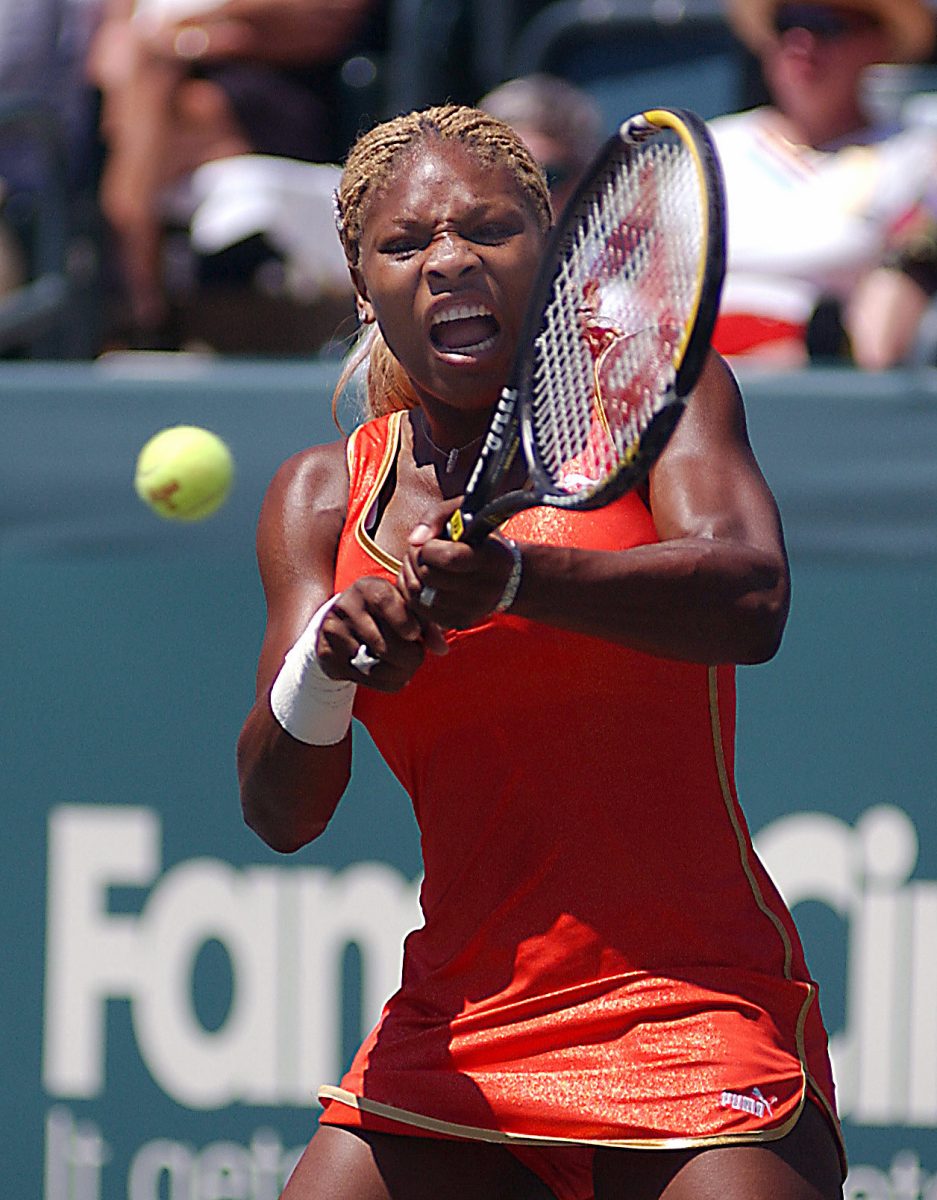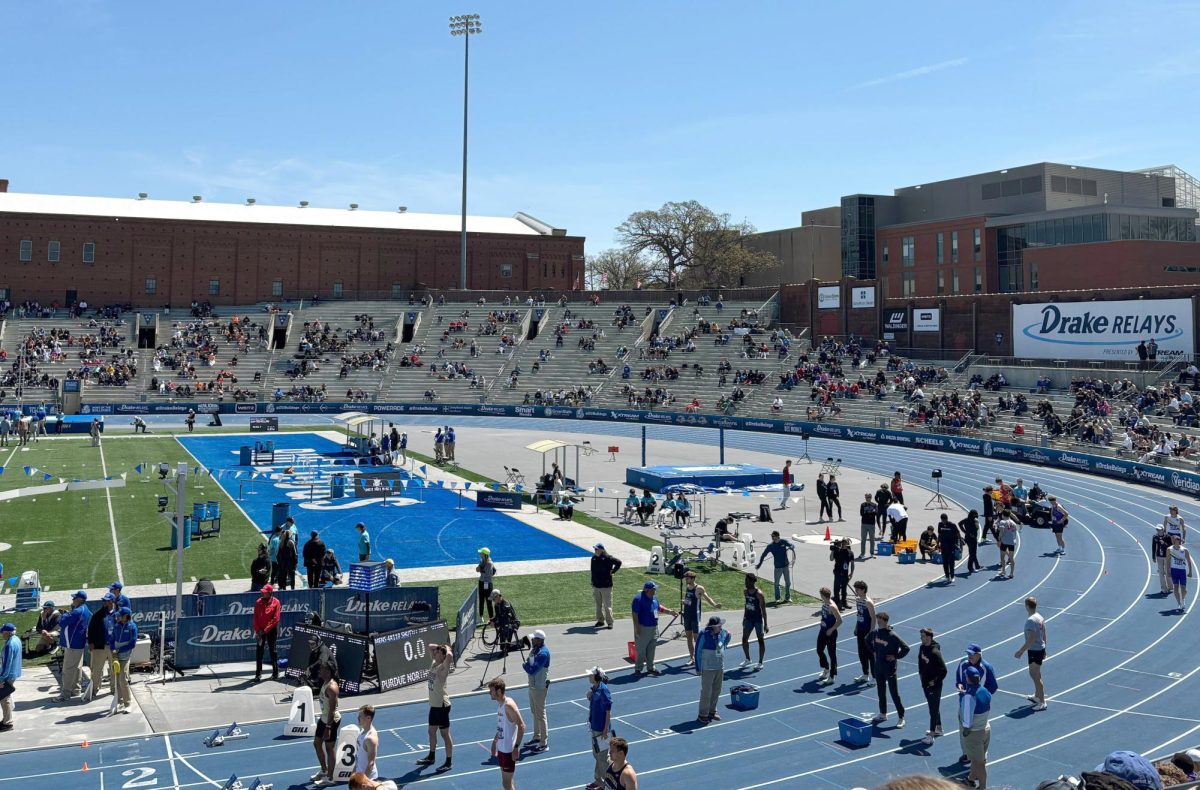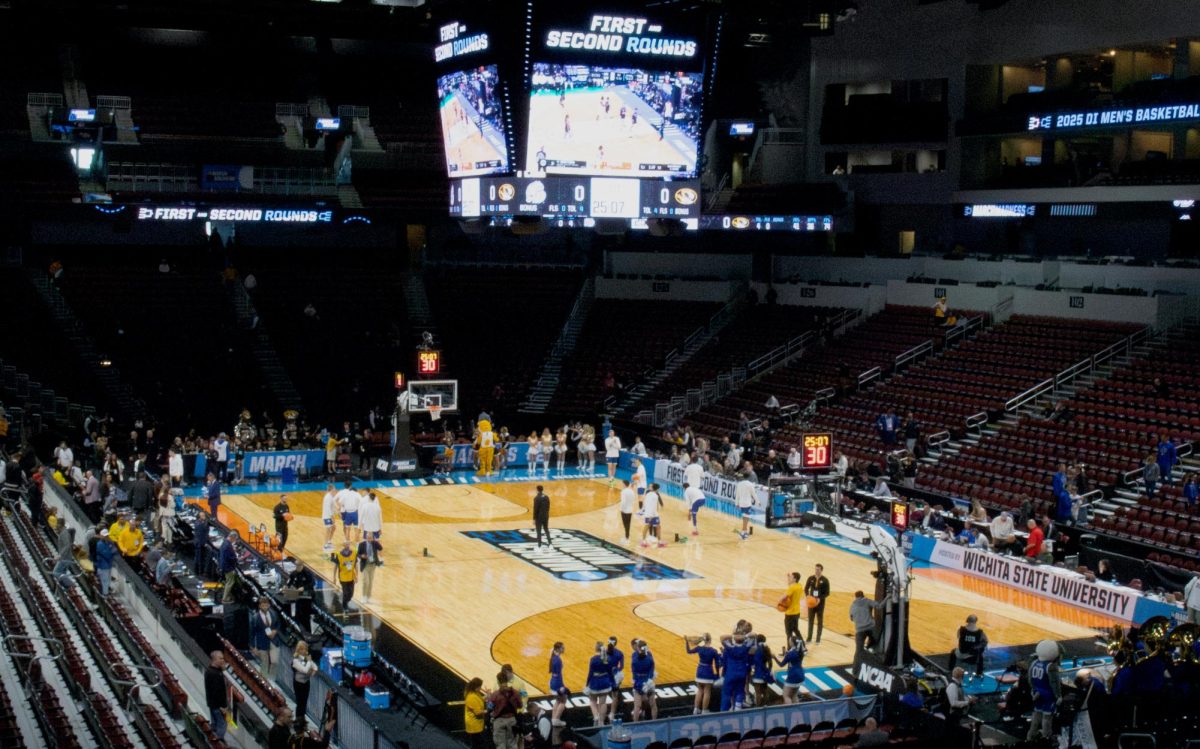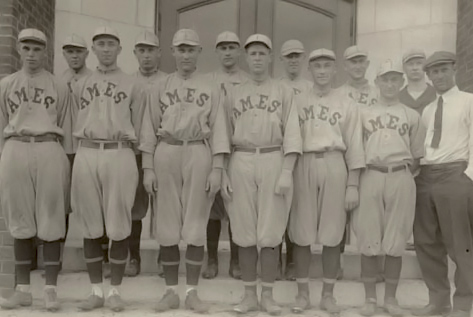Sports Commentary
Athletes are often seen as an elite class among us who are defined by being in peak human shape and their accomplishments in their sports. Fans often find themselves starting to idolize their favorite athletes, but at what point is it too much or even harmful? There’s a blurry line between idolizing someone and being obsessed with them, and becoming obsessed with other people is never a good thing.
Once athletes become professionals, and sometimes even before that, they enter the public eye. At a point, it becomes impossible to steer clear of the public eye due to the job of providing entertainment to viewers. Some athletes love the spotlight and even capitalize off it by creating brand deals, selling their own merchandise or even writing books. Just recently, college athletes have been permitted to use their own name, image and likeness for marketing as well. Athletes often become the face of a company, like Steph Curry and Under Armour, the voice of activist movements and social media influencers along with accomplishments in sports.
It’s no wonder fans love athletes. For some fans, athletes exemplify hard work. For others, it’s athleticism. Whatever the reason may be, some athletes are usually a safe bet as role models. They follow rules and regulations to ensure professionalism and usually set a healthy example that other celebrities may not need to. Especially at the collegiate level, athletes follow strict rules and regulations. Many athletes also do a large amount of volunteer work in their local communities, garnishing even more respect.
But consequently, many athletes are over-idolized. Some fans quickly become obsessed with their favorite athletes, affecting the athlete’s performance, mental health and sometimes even physical health.
Paige Bueckers, one of college women basketball’s top players at the University of Connecticut in Storrs, Conn., has been generating her own fan base since she was in high school. Bueckers is known for her ball handling and in the paint shooting on the court and her outgoing and confident personality off the court. As a college level player and a top Women’s National Basketball Association prospect, her fame has only grown. On Aug. 27, 2024, a 40-year-old man named Robert Cole Parmalee was arrested after being accused of setting a home on fire with roommates and pets inside. It quickly became clear that Parmalee had been stalking Bueckers. When arrested near a Connecticut airport, he had a ring and lingerie with a desire to marry Bueckers.
Parmelee had made multiple social media posts with threats and harassment.
“If I cannot live with a woman of my choosing [Bueckers], then I will choose to die, and I will choose to take all of you that [op]pose me, oppose us, to hell, and return, king,” Parmalee said on his TikTok.
Katie Barnes of ESPN stated that Parmalee has previous arrests for misdemeanor sexual abuse, harassment, burglary, driving under the influence and possession of methamphetamine. He was charged with harassment, electronic stalking and breach of peace.
Parmelee’s scary behavior stems from an unhealthy obsession with Bueckers and was thankfully caught by police. Bueckers has not spoken out on this event, but the stalking and harassment of athletes is damaging to the athletes and sports as a whole. Pamelee’s actions are an extreme example, but obsession with athletes at any level is still harmful. Obsessed fans may affect the way an athlete plays, holding them to incredibly high standards with an enormous amount of pressure. Obsessions can also create fierce and sometimes dangerous rivalries.
With the recent rise of basketball star Caitlin Clark came a rise of fierce rivalries as fans quickly started to idolize Clark. Clark recently finished her rookie season in the WNBA, crushing records and creating an even bigger name for her and her current team, Indiana Fever. She has proven herself in the league. However, some of her fans are not as impressive.
In the first round playoff game between the Indiana Fever and the Connecticut Sun, Sun wing DiJonai Carrington accidentally hit Clark in the eye. Before game two of the series against Indiana, Carrington shared a screenshot of an email she received on her Instagram story. The email contained a racist epithet stating they wish someone, “rapes you and cuts your head off.” There have been many other players involved in physical play with Clark who have also said they received comments directed at them. Clark has been the center of social media discourse with fans quick to defend her using racial hate comments.
“I think in my 11-year career, I’ve never experienced [anything like] the racial comments from the Indiana Fever fan base… It’s uncalled for and something needs to be done, whether it’s them checking their fans, or this league checking [it],” USA Basketball and Connecticut Sun player Alyssa Thomas said in a press conference interview after the game.
The WNBA is a community known for inclusivity and a voice for social justice, so the recent racism and hate that has flooded the community from Clark’s larger fanbase has been upsetting to the community. As sports grow globally, athlete idolization is bound to grow as well, but these examples can spark change and athlete’s leagues, and fans can partner to create a positive mindset when it comes to fandom and idolization.







